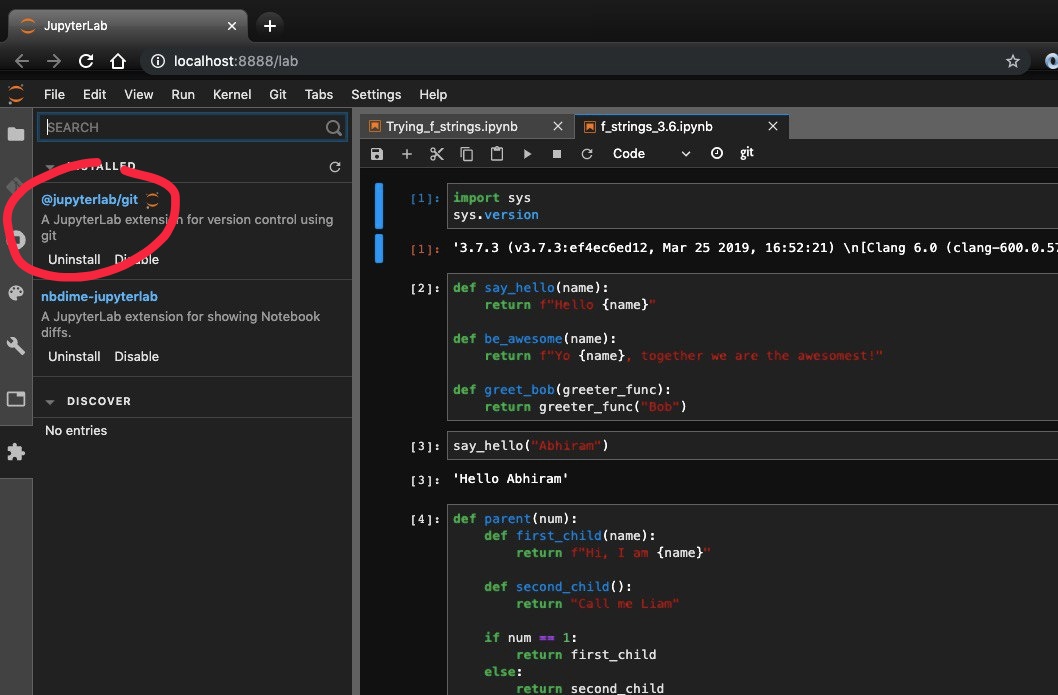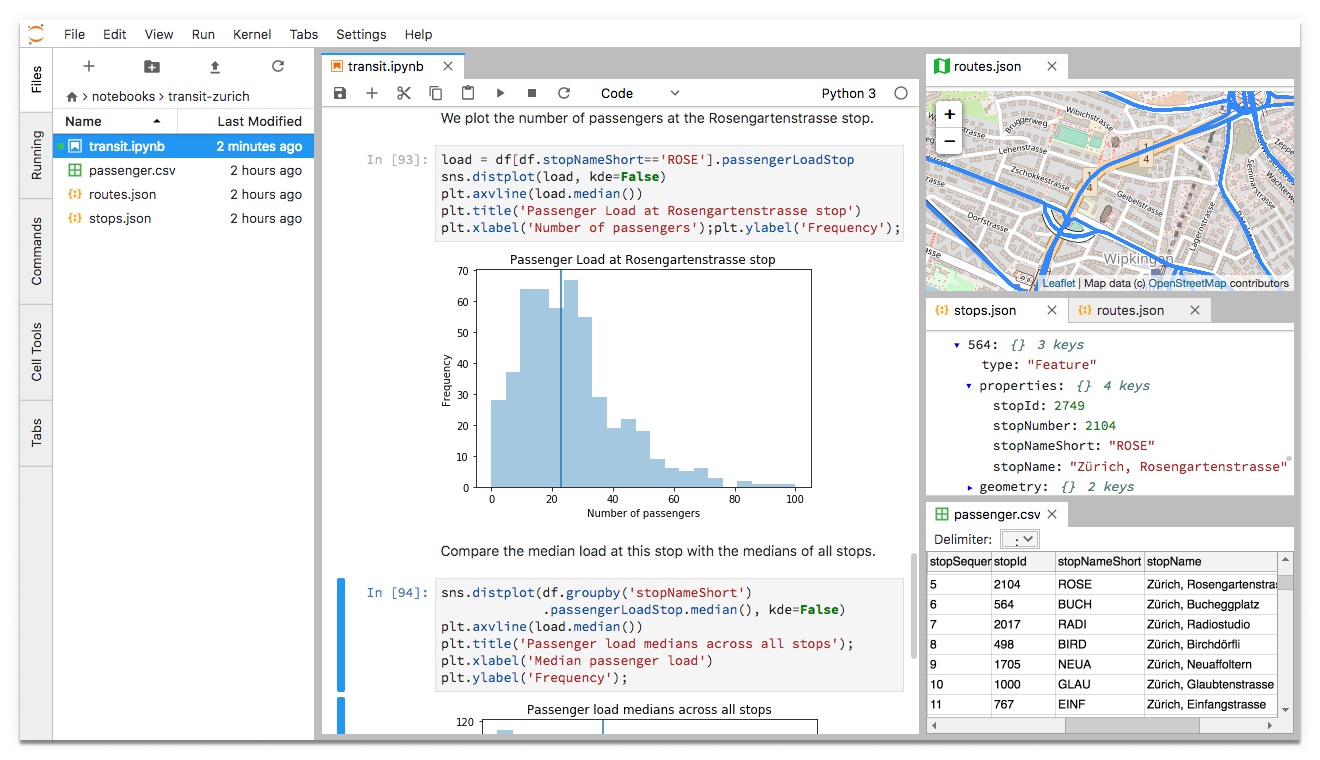
#Jupyterlab github plus
Now we can track all files (click the plus sign) so that all files are in the staged environment. You already see that all files that you changed or added are listed to the changed or untracked files. Switch to the git extension that you see on the left site of your Jupyter Lab. Make a simple change to the file and do not forget to save the file. In this repository your find the readme markdown file that we want to edit. Therefore, open the Jupyter Lab and navigate to your local new created repository. To verify that everything that we setup works correct, we create an initial commit. The following screenshot of my git bash shows each step of the connection of the local repository with the GitHub repository.

Now we have to change the connection from https to ssh, that is described in the following article: connect your local repository via ssh. Now we must add a new remote that connects to the https of your repository on our GitHub account. Use the following command to create a git repository: git init Now we navigate in the Git bash to this folder via the “cd” command and create a new repository in the folder that we created previously. Also we create a new repository on our GitHub account that we want to connect. The following picture shows the result in my Git bash Connect your Local and GitHub RepositoryĪfter setting up the authentication, we create a new folder that should be our new local repository. If you later want to verify if GitHub is in the list of known host, you can execute the following line in your Git bash. Execute the following line in your Git batch. Register the public part of it to your GitHub serverīefore we can connect via SSH to the GitHub repository, we must add GitHub to the list of known hosts.To connect to your GitHub account, we are using SSH and the following steps are already described in detail on the extension website: Set up Authentication to a Remote Repository HostĪfter the installation of the JupyterLab GitHub extension we have to set up a authentication, because otherwise everybody could make changes to your GitHub account.
#Jupyterlab github install
Pip install -upgrade jupyterlab jupyterlab-gitĬonda install -c conda-forge jupyterlab jupyterlab-git The fist thing you have to do is to install the JupyterLab GitHub extension # if you have pip installed Verify the Setup via an initial Commit Install JupyterLab GitHub Extension.Connect your Local and GitHub Repository.


Set up Authentication to a Remote Repository Host.


 0 kommentar(er)
0 kommentar(er)
